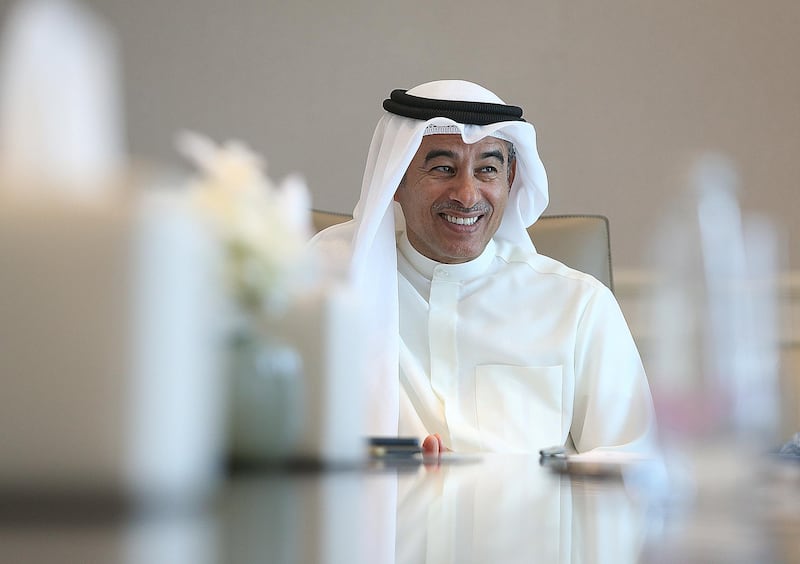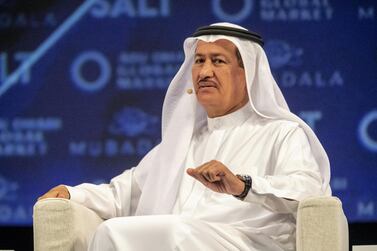Dubai's retail sector will see a gradual recovery by the middle of 2021 as it carefully emerges from the coronavirus crisis that disrupted tourism, the chairman of Emaar Properties, the emirate's largest listed developer, said after Dubai Mall reopened.
Dubai will rebound from the crisis in "better shape" than other cities across the world, thanks to the size of its commercial hub and its lack of dependence on oil, Mohamed Alabbar, the mall's developer , told CNN.
"I don't see a V-shape," he said when asked about a timetable for a recovery based on data from businesses such as Dubai Mall and Noon.com.
"I expect that we really have to go gradually, moving upward towards the end of the year, if there’s no major outbreak there, then probably into end the of the first quarter next year to mid-next year maybe we’re back to normal."
Dubai, a regional tourism and business hub, imposed strict restrictions on movement and commercial activities in an effort to containing the Covid-19 virus.
In April, Dubai announced it would partially reopen its shopping malls after more than three weeks of restrictions. The malls, however, will be required to operate at 30 per cent of capacity.
The government's decision highlights the importance of the sector as a crucial pillar in Dubai's economy and a major draw for tourists under normal circumstances.
In the UAE and around the world, governments are weighing the difficult decision between protecting public health and reopening their economies as businesses buckle under the financial strain of prolonged closures.
Mr Alabbar said the reopening during the start of Ramadan, the "slowest two weeks of the year", provides the opportunity to "try to come back carefully, gradually" and to "fine-tune and adjust".
Economies in the Middle East and Central Asia are projected to contract 2.8 per cent in 2020 due to the coronavirus pandemic and falling oil prices, according to the International Monetary Fund.
"Global cities will go through change and adjustment, some better than others," Mr Alabbar said. "With [the] size of this city and the policy of government and no dependence on oil, the chance of this city to go back, it will go back, and we will be in better shape."
The UAE, the Arab world's second-biggest economy, introduced Dh282 billion in fiscal and monetary support, providing zero interest funding to banks to boost lending growth in the country.
The government has also launched a variety of other initiatives that range from discounted utility bills to waivers of fees to buttress the economy.
The Covid-19 pandemic has hit the global economy, which is set to contract 3 per cent this year and is projected to slide into the deepest recession since the Great Depression of the 1930s.
The outbreak has hindered international trade and paralysed the airline and hospitality industries.
The pandemic also led to the delay of major global events such as the Tokyo Olympics and the Expo 2020 Dubai until next year and the cancellation of the Hannover Messe for the first time in its 73-year history.
The IMF and World Bank were forced to hold their Spring Meetings online last month.
Mr Alabbar said hosting the world fair in 2021 would be "an ideal time".
"I'm 100 per cent sure the vaccine will be with us even if it goes to next year March or April, and I believe by October we should be all fine to really use the Expo as a time of celebration and reunite the world after these times," he said.








